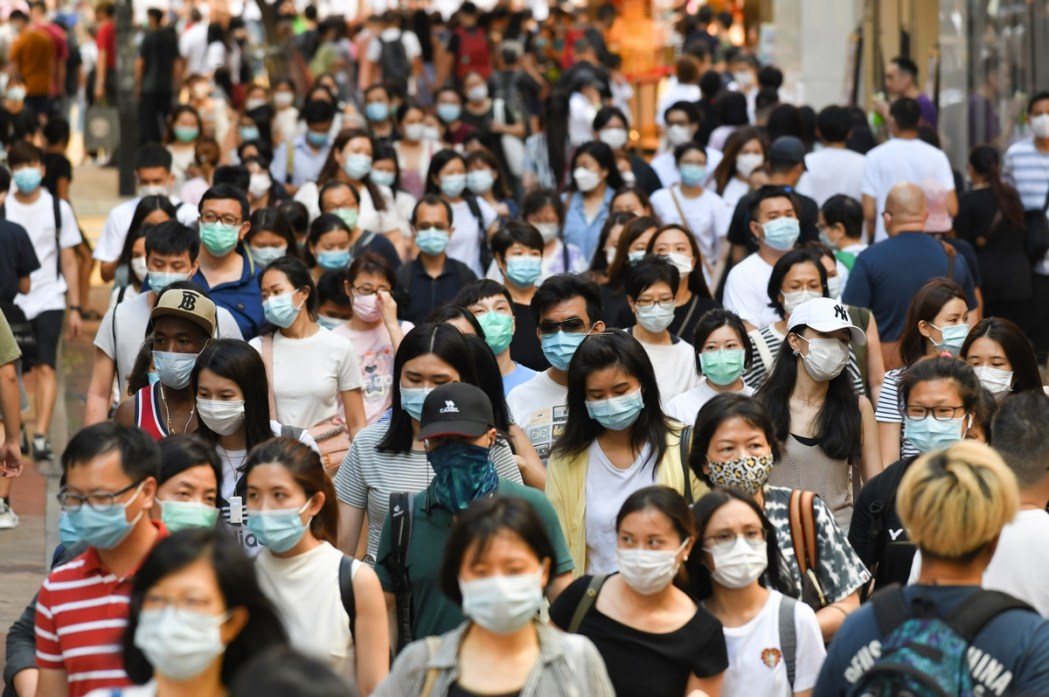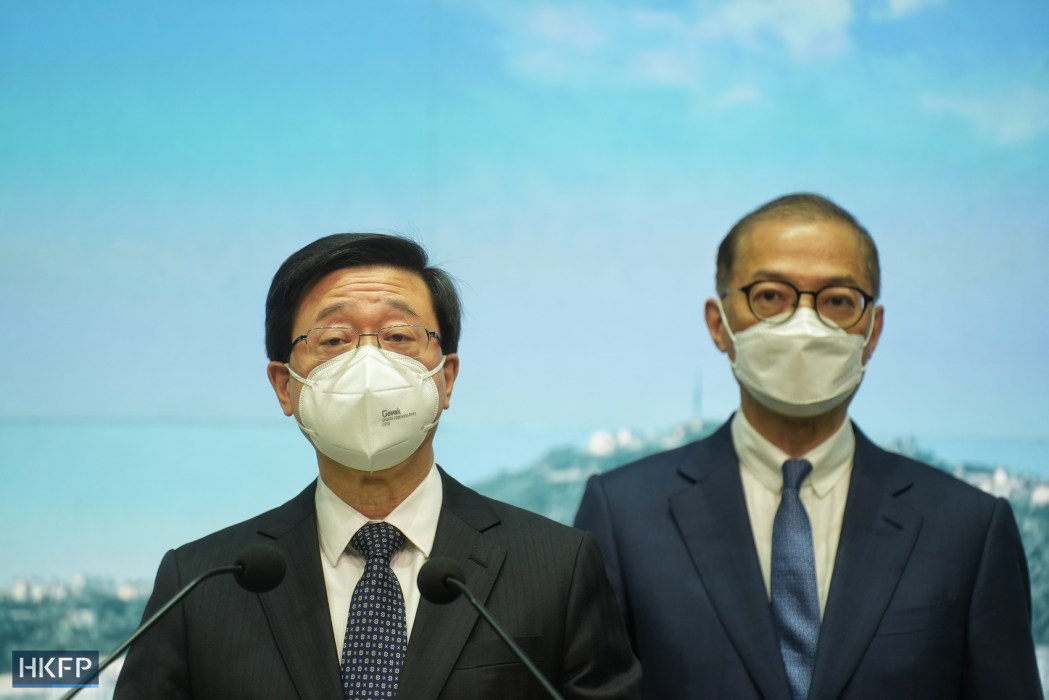Hong Kong’s long-standing Covid-19 mask mandate will be scrapped from Wednesday, Chief Executive John Lee has announced.

Lee made the announcement during his weekly press briefing on Tuesday, which came a day after neighbouring Macau dropped its outdoor mask mandate and amid increasing calls from public health experts to end the rule.
Health chief Lo Chung-mau, who was also at the briefing, said that while the mask rule has been lifted, the government would take “administrative measures” to ask people to wear masks in medical facilities.
“The government strongly recommends staff and visitors in residential homes to wear a mask,” he said, adding that people who have chronic illnesses or weak immune systems should keep their masks on in places where air ventilation is poor.
Asked why the government had decided to lift the mask ban on Wednesday, Lee said: “I have told people since almost two months ago that this is an issue that I will be actively monitoring to examine when will be an appropriate time to lift the masking requirement. So after looking at all the data, the trend and the fact that the winter surge is nearing the end, [I am lifting the mask ban] in order to give people a very clear message that Hong Kong is resuming normalcy.”
Lo said: “This means all our Covid-19 measures have officially come to an end. Hong Kong has fully returned to normal… We look forward to March 1 – tomorrow – being better. Everyone can smile and say hello Hong Kong.”
From Wednesday, secondary school students are no longer required to take daily rapid Covid-19 tests to enter schools, although the rule remains in place for primary schools and kindergartens for another two weeks. Health authorities also announced on Monday that the PCR test requirement for staff and visitors to public hospitals and elderly care homes would be replaced with a rapid test from Wednesday.

The city’s rule mandating outdoor mask-wearing was imposed on July 29, 2020, when an indoor mask mandate was already in effect. It has been among the only places in the world still imposing the rule, with violators facing a fixed penalty of HK$5,000, or a maximum fine of HK$10,000 if their case went to court.
A number of medics had called for the mandate to be axed, saying it had limited use as Covid-19 subsided. Last October, Lee said compulsory outdoor mask wearing would continue “at least for the time being” unless there is a “significant” rise in children’s Covid vaccination rate. But, when Hong Kong followed China in scrapping most of its Covid regulations amid nationwide protests last year, the city retained the mask mandate as Lee cited the spread of the winter flu.
In early February, the chief executive repeatedly claimed Hong Kong had “no restrictions whatsoever” as he sought to resuscitate the city’s ailing economy and tourism. Authorities, however, were continuing to fine people for failing to mask up.
Mask ban continues
While the Covid-19 mask rule has been scrapped, Hong Kong’s mask ban – introduced during the extradition bill protests in 2019 – remains in place. At the time, it was common for protesters to wear facial coverings to hide their identities during the demonstrations.
The law states that anyone who disobeys a police order to remove a mask could be sentenced to six months in jail and a HK$10,000 fine.

At the time, chief executive Carrie Lam called the decision to enact an anti-mask law a “necessary” one “based on the current situation.”
Asked whether the government would drop the mask ban too, Lee said the mask ban and the mask mandate were “two different homes.”
“The mask mandate was for public health matters. As for the mask ban, we will review it at a suitable time. At this moment, we will not handle it,” he added.
Opinion mixed
A recent survey conducted by the Chinese University of Hong Kong found that 60.7 per cent of respondents agreed that the city should drop all of its pandemic restrictions by the end of March.
However, an earlier survey – conducted before the city’s border with mainland China reopened – showed that 60 per cent of the 40,000 respondents polled supported mandatory masking.
The scrapping of the mandate suggests that rules banning eating on ferries will also be relaxed.
At the start of the year, Hong Kong once again saw the highest Covid death rate in the world, according to Quartz. The city also had the most Covid deaths globally during its fifth wave, which health experts put down to low vaccination rates among elderly people, low rates of prior infection and an overwhelmed healthcare system.
Lee has nevertheless declined to back an independent investigation into the government response, despite recommendations from top medics.
Additional reporting: Hillary Leung
Support HKFP | Policies & Ethics | Error/typo? | Contact Us | Newsletter | Transparency & Annual Report | Apps
Help safeguard press freedom & keep HKFP free for all readers by supporting our team

LATEST FROM HKFP
HKFP has an impartial stance, transparent funding, and balanced coverage guided by an Ethics Code and Corrections Policy.
Support press freedom & help us surpass 1,000 monthly Patrons: 100% independent, governed by an ethics code & not-for-profit.












